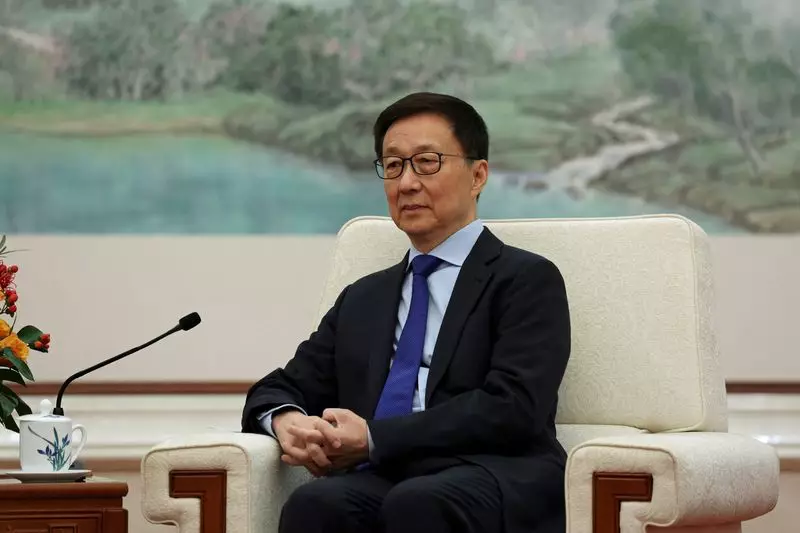The return of Donald Trump to the presidency has brought with it a wave of apprehension in China. Many, from officials to everyday citizens, are caught between hope and anxiety about the potential for a new era of U.S.-China relations. Following a tumultuous period marked by a fierce trade war, there is a palpable desire in China to avoid a repeat of those fraught economic confrontations. The most recent series of trade insults and tariffs pulled the two nations apart, inflating costs and driving uncertainty for businesses.
When Trump last held office, he imposed tariffs on over $300 billion of Chinese imports, a tactic that proliferated tension and mistrust. As Trump maneuvers his way back into the political limelight, proposals for additional tariffs linger ominously in the air. Making the situation more complex is the participation of companies like Tesla, as they serve as a bridge between these two economic giants. Vice President Han Zheng recently extended an olive branch to the U.S. business community, expressing hopes that American firms would not only invest but also flourish within China, potentially stabilizing the precocious economic relationship.
Immediately prior to Trump’s inauguration, Han Zheng’s interactions with notable figures such as Tesla CEO Elon Musk underscore China’s earnestness in fostering cooperative ties. Wenming, an expert in international relations, suggests that these meetings represent a shrewd diplomatic maneuver aimed at softening the ground between the two nations. By sending a higher-ranking official to Washington rather than relying solely on its ambassador, China signals a deeper commitment to fostering dialogue. However, the acknowledgment of the strained relationship cannot be overlooked, as attendees voiced concerns about Biden’s unpredictability and potential disruptions in international trade.
In a rather pointed move, Trump’s invitation to Chinese President Xi Jinping for his inauguration was met with a cautious response. While Xi declined and sent Han in his stead, the act itself carries weight; it could be interpreted as a gesture of goodwill aimed at mending the fractured ties tarnished during Trump’s previous administration. After their recent discussions, Xi and Trump voiced optimism for a recommencement of better relations, but it remains to be seen how these intentions will materialize.
The immediate marketplace response to Trump and Xi’s phone call showcased a modicum of optimism. Chinese and Hong Kong stocks witnessed a notable rise as fears surrounding geopolitical tensions eased. Such fluctuations highlight the sensitivity of the economic landscape to political shifts, revealing how closely entwined the fortunes of the two countries have become. However, beneath the surface of this euphoria lies a deeper concern among the populace about the sustainability of growth in a post-pandemic world.
One local Beijinger, expressing concerns over the current economic climate, pointed out that the pandemic has significantly strained the Chinese economy. The sentiment reverberates through various sectors, where uncertainties hang thickly over future growth trajectories. Trump’s characterization as a “crazy, wild person” indicates a broader skepticism among citizens who feel vulnerable to unpredictable changes in U.S. policy, particularly as they relate to tariffs and trade agreements.
In the face of such uncertainty, the road ahead for U.S.-China relations is fraught with complexities. While positive overtures from Chinese officials and the enthusiasm from certain sectors in American business paint an optimistic picture, the reality of Trump’s return complicates matters heavily. Experts caution against overly optimistic interpretations, emphasizing that underlying tensions remain unresolved.
The desire for collaboration seems mutual, but the potential for misunderstandings persists. With the ever-watchful eyes of global markets and citizens, each diplomatic gesture will be scrutinized for its sincerity and impact. If anything, Trump’s inauguration has reignited discussions that could redefine international trade dynamics but has also reminded leaders on both sides that communication will be essential in containing potential conflicts.
While both nations are seeking stability, the terrain of U.S.-China relations is rocky, necessitating a blend of diplomacy, economic intelligence, and a willingness to engage in constructive dialogue as they navigate this new chapter.

